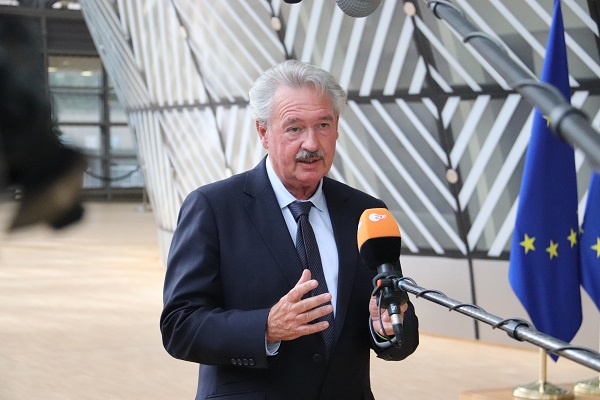 Jean Asselborn, Luxembourg's Minister of Foreign and European Affairs;
Credit: MAEE
Jean Asselborn, Luxembourg's Minister of Foreign and European Affairs;
Credit: MAEE
At the Foreign Affairs Council (FAC) of the European Union (EU) in Brussels on Monday, the Benelux countries highlighted the importance of the EU defending its digital sovereignty.
During this FAC meeting, EU foreign ministers began by discussing the geopolitics of new technologies. More specifically, they examined the growing link between new technologies and the EU's foreign and security policy.
In a joint intervention, Belgium, the Netherlands and Luxembourg (Benelux) stressed that "[a] strong and coherent technology policy is essential in order to foster the competitiveness of the EU as well as to consolidate its resilience and cybersecurity".
The ministers then had an in-depth exchange of views on the future strategic compass of the EU. Luxembourg's Minister of Foreign and European Affairs, Jean Asselborn, emphasised that this future strategic compass must imperatively reflect the common values of the EU, in a constantly evolving security context.
In addition, Minister Jean Asselborn and his European counterparts had an informal exchange of views with the new Israeli Minister for Foreign Affairs, Yair Lapid. In particular, discussions focused on EU-Israel relations, as well as the peace process in the Middle East.
Luxembourg and Ireland's Foreign Ministers jointly welcomed this exchange with their Israeli counterpart, recalling that Israel is a strategic partner of the EU. The two ministers expressed their concern over the consequences of certain Israeli measures on the human rights of Palestinian citizens of Israel, Palestinian residents of East Jerusalem and Palestinians throughout the Occupied Palestinian Territory.
Luxembourg and Ireland particularly condemned the renewed demolition by Israeli forces of the village of Humsa Al-Bqai'a, in the occupied West Bank, on 7 July 2021. “These acts are inhumane and contrary to Israel's obligations under the international humanitarian law”, stressed Ministers Jean Asselborn and Simon Coveney. The former also reiterated Luxembourg's call for an immediate end to Israel's settlement policy in the occupied Palestinian territory.
Furthermore, the EU foreign ministers discussed the situation in Ethiopia, calling on all parties concerned to work for the rapid and effective implementation of the ceasefire in place. The ministers lamented that the rapid, unhindered and unconditional access to Tigray for humanitarian actors is still not guaranteed.
In the afternoon, the ministers addressed several international issues, including the latest developments in Lebanon and in the countries of the South Caucasus. The situation in Afghanistan, following the withdrawal of NATO troops, was also mentioned; Luxembourg has just confirmed that it will contribute €3 million to a project led by the Food and Agriculture Organization (FAO) of the United Nations (UN) in Afghanistan for the next four years.








